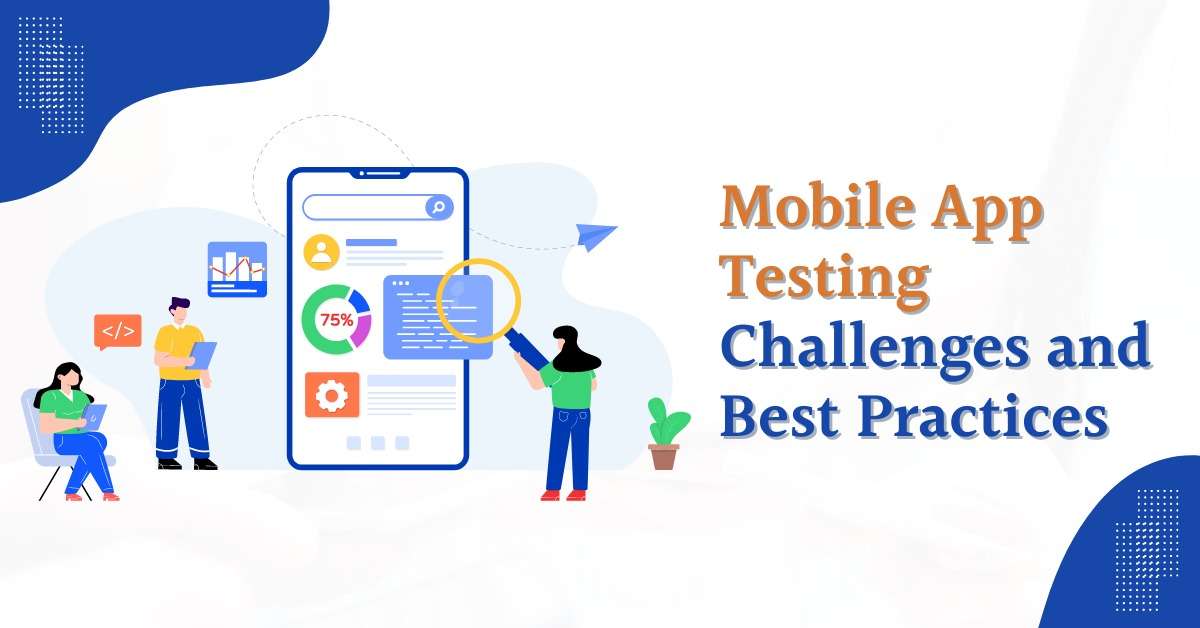
Mobile app testing challenges and best practices
Introduction :
Mobile apps are in high demand due to affordable data and the increasing digital transformation of businesses. Large corporations are now aggressively investing in this area, necessitating a better mobile app testing solution.
The major challenges faced in mobile app testing?
Here are some issues of mobile application testing and solutions:
Many mobile apps : In 2020, 1.38 billion smartphones were sold and the number increased to 1.53 billion in 2021. Most mobile apps are online or hybrid, each with its own set of issues and testing methods. You cannot just apply a standard textbook answer to all cases, and we create use-cases and scenarios for mobile app testing based on the application type.
Screen sizes : Previously, apps could resize themselves to fit the mobile screen, but today, there are scaling and element organization problems. It isn’t feasible to test the app on every device.
Building applications with a flexible, dynamic layout ensures flawless operation on all screen sizes. Our cross-browser testing tools ensure website responsiveness.
Mobile network problems : The main challenge of mobile network bandwidth testing is that even end-users on slower networks want their applications to perform faster. Data communication is also a major issue, and we recommend you test the application with various network bandwidths and response times.
Best practices for mobile app testing
Here are some tips for choosing the best mobile app testing services for your business:
Select the right test device : Which devices are more common? What OS can support? Evaluate the app’s needs and functionality to determine the testing device.
Consider the real environment : For weak network connection alarms, incoming calls, SMS, and low-battery alerts, you should use the blend of both manual and automated testing. It will help in validating the end-user experience on the app.
Run performance testing : Consider the device’s processing power, storage capacity, and battery to ensure your application is properly optimized to run on multiple devices efficiently. It will also help you understand the application’s capabilities and identify and fix any performance bottlenecks.
Functional testing is crucial : Test your app on common devices and operating systems. Consider validating all the key features that end-user would use on a regular basis. You can leverage crowd testing to get the right results.
How we can help
Mobile app testing is not a simple task and you need a roadmap for its success. If you have trouble testing your mobile app across many platforms and devices, our unique and robust mobile app quality assurance services can help you achieve the best results.
